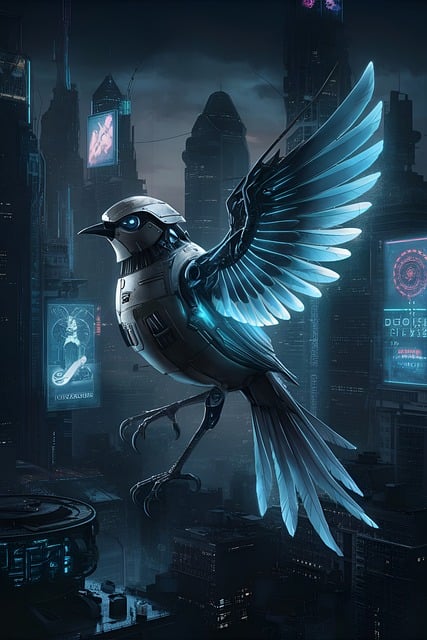Understanding Artificial Intelligence: Concepts, Tools, Applications, and Trends
Artificial Intelligence (AI) is transforming the way we live, work, and interact. From smart devices to predictive systems, AI is at the forefront of innovation. In this guide, we explore what AI is, how it works, and its wide-ranging applications.

LINK- AI Job & Skills
Core AI Concepts Explained
AI tools power next-gen, futuristic innovations & revolution. Artificial Intelligence refers to the simulation of human intelligence by machines. Within AI, Machine Learning (ML) enables systems to learn from data. A subset of ML, Deep Learning utilizes complex structures like Neural Networks to process vast amounts of information efficiently.
Technologies like Natural Language Processing (NLP) and Computer Vision allow machines to understand text and images, while Robotics brings these capabilities into physical form. Training models involves approaches like Supervised Learning and Unsupervised Learning, and areas like Reinforcement Learning help systems make decisions based on outcomes.
Emerging fields such as Generative AI create new content, while Cognitive Computing mimics human reasoning. Researchers are also exploring the future potential of AGI (Artificial General Intelligence) and ASI (Artificial Superintelligence). Underlying it all are innovative AI algorithms and evolving neural architectures.
The Transformative Power of AI: A Look at the Next-Gen Technologies Shaping Our Future
Artificial Intelligence is now a reality—it’s a revolutionary force, reshaping our industries, economies, and daily life. With a wave of cutting-edge innovations flooding the tech landscape, AI is entering a new era marked by intelligence, automation, and human-like adaptability.
From breakthrough developments in language models to autonomous systems that learn on the go, today’s AI solutions are nothing short of next-gen. These technologies aren’t just updates—they’re disruptive, challenging traditional processes and redefining what’s possible in everything from healthcare to creative design.
One of the most game-changing advancements is the rise of generative AI, where machines can now create art, write stories, compose music, and even assist in coding. These tools represent a trailblazing shift in how we work and express ourselves—blurring the line between human creativity and machine intelligence.
As industries race to adopt futuristic applications—from AI-driven diagnostics in medicine to autonomous vehicles navigating complex environments—the demand for smarter, faster, and more reliable systems is growing rapidly.
Behind these achievements lies state-of-the-art architecture and model training methods, built to process massive datasets and produce intelligent responses in real time. Businesses leveraging these innovations are experiencing a transformative boost in efficiency, decision-making, and customer engagement.
In conclusion, we are witnessing a moment in history where AI isn’t just evolving—it’s igniting a revolutionary, trailblazing path toward a more intelligent and connected world.
Popular AI Tools and Technologies
Companies like OpenAI, Google DeepMind, and Anthropic are leading the development of advanced AI tools. ChatGPT, powered by GPT-4, is one of the most recognizable conversational AI platforms today.
Visual creativity is being reimagined with tools like Midjourney, DALL·E, and Stable Diffusion, offering stunning capabilities in AI art and design. Developers rely on frameworks like TensorFlow, PyTorch, and Keras for model building, while platforms such as Hugging Face and LangChain provide ready-to-use AI solutions and integration.
Voice and text-based platforms like Claude and Bard continue to push the boundaries of interaction between humans and machines.
AI Applications Across Industries
AI is making major waves in various industries. AI in Healthcare supports diagnostics and personalized treatment, while AI in Finance powers fraud detection and automated trading.
In business, AI in Marketing personalizes campaigns, and AI Automation improves productivity. Voice Assistants and Smart Assistants like Siri and Alexa are common in AI in everyday life.
Other high-impact uses include AI in Education, AI in Gaming, and AI in Cybersecurity. Systems like Recommendation Systems, AI Chatbots, and Predictive Analytics are becoming standard in digital products.
AI also fuels innovation in Autonomous Vehicles and Facial Recognition, pushing the limits of real-time data processing and decision-making.
Trending AI Buzzwords You Should Know
Staying current with AI trends involves understanding the latest buzzwords. Prompt Engineering is crucial in refining interactions with language models, while Explainable AI (XAI) emphasizes transparency.
With increased reliance on AI, concerns like AI Ethics, AI Bias, and AI Safety have come to the forefront. Organizations focus on AI Governance, AI Regulation, and responsible data practices.
Terms like Model Training, Fine-Tuning, and Big Data highlight the technical side, whereas Digital Transformation and Data Science underline AI’s business impact. Long-term thinkers are also watching concepts like the Turing Test and Singularity as benchmarks for machine intelligence.
AI Search Trends and What People Are Asking
Searches like “What is AI?” and “How AI works” are more popular than ever. Users are also looking for “Best AI tools“, “Free AI tools“, and insights on the “Future of artificial intelligence“.
As companies look to gain competitive advantages, queries like “AI for business“, “AI in everyday life“, and even comparisons such as “AI vs Machine Learning” dominate search engines.
Emerging AI trends in 2025 include greater human-AI collaboration, stronger regulation, and enhanced multimodal systems.
Ultimate Guide to AI Jobs in India: Trends, Roles, and Career Paths in 2025
The rise of Artificial Intelligence is transforming the job market across industries, and nowhere is this more evident than in India. From AI jobs in India for freshers to highest highest-paying AI jobs in India, the opportunities are vast and diverse. In this guide, we’ll cover everything from salaries and job types to sectors like healthcare AI jobs in India and even airport jobs in India influenced by AI technology.
Exploring AI Job Types and Roles
In 2025, there has been a noticeable increase in AI engineer jobs in India, fueled by advancements in Machine Learning and Deep Learning. If you’re seeking entry-level AI jobs in India, you’ll find roles in startups, IT companies, and government agencies.
EXAMPLE:
- Machine Learning Engineer
- Data Scientist
- AI Research Scientist
- AI/ML DevOps Engineer
- Robotics Engineer & many More
AI tools are widely used in development roles, and with the rise of AI chatbots, companies are hiring professionals to build, maintain, and optimize them. For freshers, generative AI jobs in India for freshers present an exciting opportunity to work on innovative language and image-generation technologies.
Salaries and Work Types
Curious about the AI jobs in India salary or even the AI jobs in India salary per month? While these vary based on experience, location, and industry, entry-level roles often start around ₹6-10 lakhs per annum, with the highest-paying AI jobs in India going up to ₹50+ lakhs.
You can find jobs in India that work from home and even remote jobs in India, ideal for those seeking flexibility. From AI jobs in India full-time to AI jobs in India part-time, the job market is adapting to changing work preferences. Contractual roles are also available, as seen in AI jobs in India contracts, and students can apply for AI jobs in India internship opportunities.
AI Across Industries
The influence of AI is not limited to IT. There are growing AI-related jobs in India across industries like finance, law, and healthcare. Specific roles such as AI ML jobs in India are key in data-heavy sectors. The aviation industry is no exception, where aircraft technician jobs in India, air hostess jobs in India, airlines jobs in India, airbus jobs in India, and general air jobs in India are increasingly relying on AI integration.
Even airport jobs in India now incorporate elements of automation and analytics, requiring professionals familiar with AI systems. Meanwhile, aix jobs in India are trending for those working in enterprise-level AI applications.
Government and Community Insights
Interested in stability? Consider applying for AI government jobs in India. These roles are growing in demand as the public sector incorporates AI to enhance service delivery and infrastructure.
For peer-driven insights, platforms like AI Jobs in India Reddit offer discussions and personal experiences about the job hunt, interview processes, and career growth.
Trends, Companies, and the Future
Curious about the future of AI jobs in India? The trajectory is promising, with a strong push toward innovation, policy support, and international collaboration. Companies like OpenAI are also expanding, offering open AI jobs in India for researchers and developers.
The best AI jobs in India often come from top AI companies that prioritize ethical innovation. Understanding AI ethics is crucial as technology evolves, especially in sensitive areas like AI in healthcare and AI in law.
To stay updated, track AI jobs in India since yesterday, in the last 3 days, in the last week, or even in the last month—timing can make a huge difference.
And if you’re wondering how to get AI jobs in India, start by learning Natural Language Processing (NLP), contributing to open-source projects, and connecting with professionals on LinkedIn.
If you’re someone who thinks outside the box, look into outlier AI jobs in India, which cater to unique use-cases and often lead to pioneering roles.
Finally, as AI investment grows and technologies evolve toward AI singularity, job seekers with the right skills will continue to find new and exciting AI applications shaping every aspect of the workforce.
